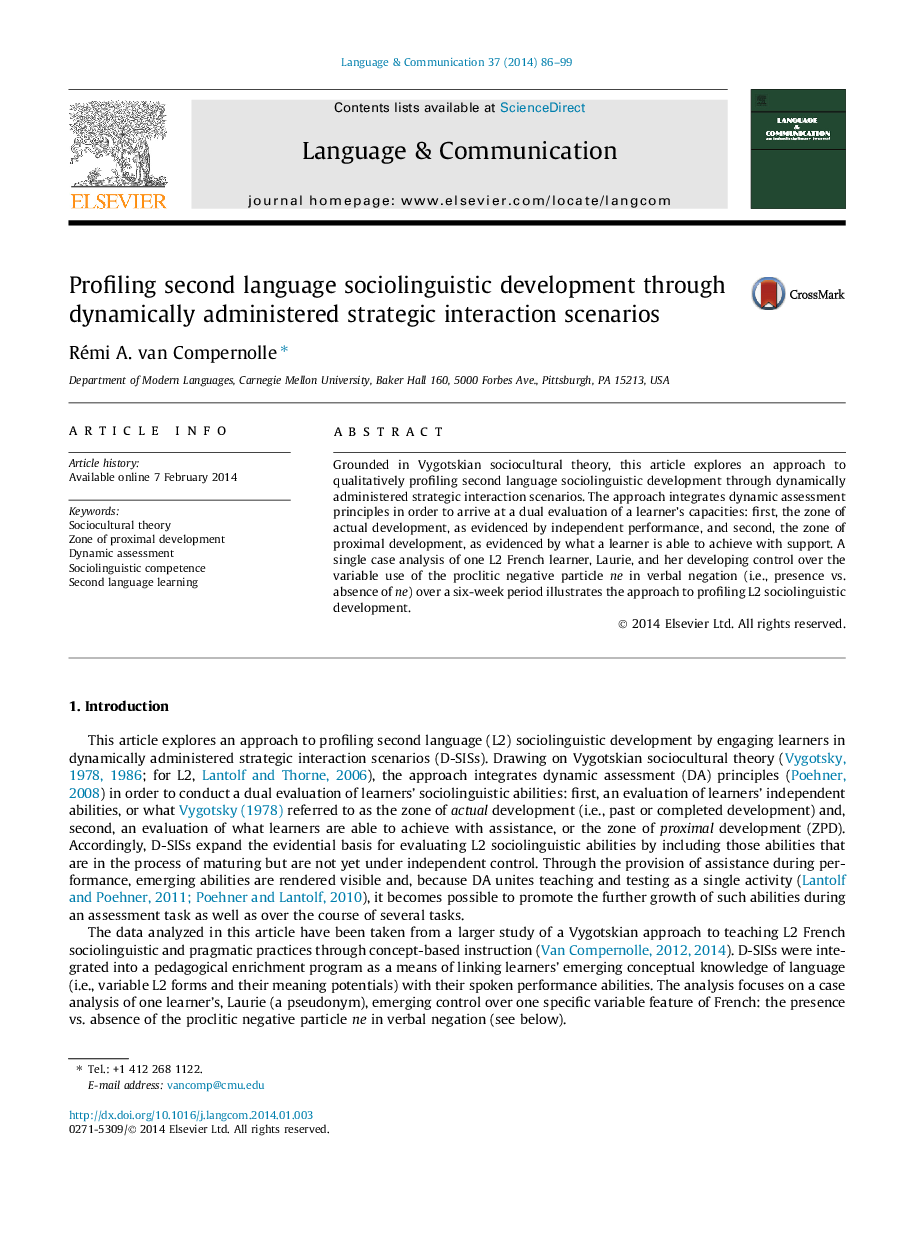| Article ID | Journal | Published Year | Pages | File Type |
|---|---|---|---|---|
| 934795 | Language & Communication | 2014 | 14 Pages |
•A dynamic method for profiling L2 sociolinguistic development is proposed.•A longitudinal single case analysis illustrates the approach to profiling development.•Dynamic assessment uncovers still-maturing L2 sociolinguistic abilities.•Dynamic assessment promotes the continued growth of L2 sociolinguistic abilities.•Dynamic assessment links metalinguistic knowledge to online performance.
Grounded in Vygotskian sociocultural theory, this article explores an approach to qualitatively profiling second language sociolinguistic development through dynamically administered strategic interaction scenarios. The approach integrates dynamic assessment principles in order to arrive at a dual evaluation of a learner’s capacities: first, the zone of actual development, as evidenced by independent performance, and second, the zone of proximal development, as evidenced by what a learner is able to achieve with support. A single case analysis of one L2 French learner, Laurie, and her developing control over the variable use of the proclitic negative particle ne in verbal negation (i.e., presence vs. absence of ne) over a six-week period illustrates the approach to profiling L2 sociolinguistic development.
